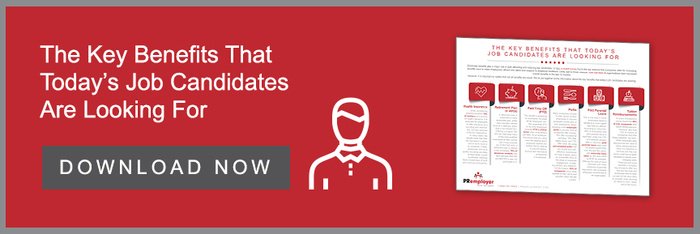
A Professional Employer Organization (PEO) brings many benefits to small and midsize businesses. These range from more affordable healthcare to reduced administrative burdens.
However, misunderstandings arise when the term “co-employment” is brought up. This is understandable; the name is misleading in several ways. The term has given rise to five myths which deserve to be busted.
Myth 1: You Lose Control
Every business owner worries about losing control over their business and the decision-making process. When you work with a PEO, you retain all of that control. Co-employment does not change that.
PEOs enter a co-employment agreement with a business so that the PEO can remit payroll taxes on their behalf and offer access to their benefits packages. Day-to-day management decisions such as hiring, firing, and disciplining employees remain in your hands.
Myth 2: Employee Leasing is the Same as a PEO Co-Employment
Employee leasing commonly occurs with large projects or when a company only has a temporary need for an employee. This leasing arrangement occurs with a staffing agency and the company that needs to fill a role. While this is technically a “co-employment relationship,” employee leasing differs drastically from PEO co-employment.
That’s because employee leasing DOES take day-to-day decisions such as hiring and firing out of the hands of business owners. This leads to claims of joint employment which can raise legal issues.
Myth 3: Joint Employment Issues Arise with PEO Co-Employment
Many legal concerns exist when being labeled as a joint employer. These include massive fines as specified by the Fair Labor Standards Act (FSLA).
Under the FLSA, to be considered a joint employer, both employers must exert control over the employee. This means the employers must tell the employee what work to do, when to do it, and even how to do it. When using an employee leasing agency, this line becomes blurred and it's entirely possible for both the agency and your company to be labeled as joint employers.
However, this is entirely separate from the co-employment arrangement between a business and a PEO. There is no risk of PEO co-employment being interpreted as joint employment because PEOs do not have any control over employees.
Myth 4: You Have to Stop Working with all Other Providers
You do not have to take everything the PEO offers you. If you like your current healthcare provider, stay with them. If you prefer your workers’ comp carrier, then keep things the same.
The only exception is that PEOs must take over payroll duties. However, PEOs are experts in processing payroll, so there is nothing lost by switching from a payroll provider to a PEO.
Myth 5: Employees Will Dislike Co-Employment
Depending on the services you select, working with a PEO can be a big change for your company. But youremployees want better benefits. By partnering with a PEO, you can provide better health coverage, faster payroll processing, and more streamlined HR tasks. Your employees will quickly jump on board and wonder how they lived without these precious services.
In fact, studies have shown that employees are happier and more engaged when their employer partners with a PEO.
PEO Co-Employment Works
There is a good reason that over 156,000 businesses have partnered with PEOs. The average ROI of a PEO is 27.2%. Much of these cost-savings come from accessing more affordable benefits packages. That is all made possible by the co-employment agreement.

